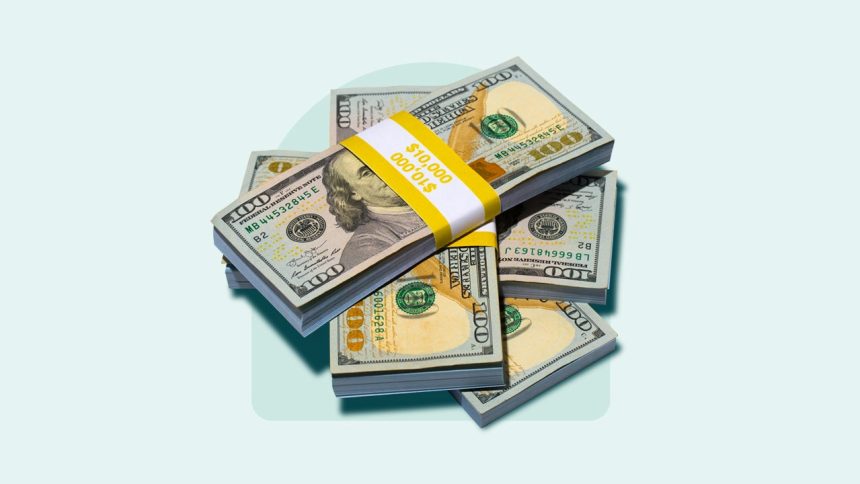A few years ago, I made what seemed like an impossible decision: I was going to pay off $300,000 in debt, including student loans and even my mortgage. No lottery winnings. No inheritance as a first generation Filipino-American millennial.
The secret? A simple, repeatable one-hour monthly money routine on the first Sunday of every month that keeps my finances on track — without obsessing over every penny.
Most people think they need a complicated budget or hours of tracking receipts to stay on top of their money. They don’t. What they need is a proactive, simplified system that fits into your real life.
Here’s exactly how I do it, and how you can too.
My 1-hour monthly money routine
EXPAND
Step 1: Plan for the month ahead
Money anxiety usually comes from surprises — so I eliminate them before they happen. I spend no more than five minutes reviewing last month’s spending. Regret doesn’t pay the bills; learning and moving forward does.
Next, I check my calendar for anything that could impact my budget — travel, events, medical expenses, even busy weeks when I’ll be working a lot, and therefore eating out more. I adjust my budget based on those real-life occurrences, instead of feeling bound by unrealistic and tedious spending categories.
For example, as I was looking toward my 40th birthday, I planned the travel required to celebrate with my long-distance friends. I also planned to spend less on groceries, knowing I would be on the road when I would normally be home cooking.
Every month should look different on your budget. No two months have ever looked exactly the same for me.
Step 2: Reset my credit cards to zero
You’ve heard before that you should pay off all credit card balances each month, but depending on when they’re due, they can really mess up your cash flow.
I often see clients “spending dollars twice” because they may have money in the bank, but a lingering credit card balance leads them to overestimate how much cash they really have to spend.
I now pay off every single credit card balance — regardless of when it’s due — so I start the new month with a clean slate.This way, there are no mental gymnastics trying to track due dates. No interest payments to budget for. No carrying balances that could derail my spending for the month ahead.
Money tip:
If you’re currently carrying credit card debt, your first and only money goal is to pay down that debt until you can pay off your credit cards every week, not just every month.
With credit card interest rates averaging around 20%, it is significantly less stressful to plan your spending without having to take costly interest fees into account.
Step 3: Clean up financial clutter and handle annoying admin
There’s always some financial task that we put off. Think of those to-dos that you say you’ll get to when you have time, but then weeks or even months go by. This is when I make time to knock it out. For example:
- Calling to close an account you no longer use or transferring funds from one bank to another.
- Shopping around for better auto insurance rates or resolving outstanding claims.
- Returning items that didn’t work out or selling items for cash.
- Researching the best place to put extra cash, like deciding whether to renew a maturing CD.
- Reviewing my spending to identify patterns that need tweaking. If I overspent in one area last month, I decide how to adjust.
Step 4: Replenish my cash flow cushion
I don’t like manually managing expenses, and I really don’t like running out of cash when I need it. I transfer money to my savings and investments according to my goals at the beginning of the month, not with leftover cash.
Money tip:
Many people wait to put money in savings after settling their expenses, but by setting aside savings first, you increase the odds that the savings will stay put.
Specifically, I do my best to have at least one month’s worth of expenses sitting inside my checking account, referred to as my cash flow cushion, so that my bills can run automatically for the upcoming month. If I dipped into my savings last month, I would allocate funds to rebuild my cash cushion and keep my cushion full to keep the routine going next month.
Step 5: Pay for big ticket items and celebrate!
One of my favorite money hacks: paying for things as soon as possible so I don’t have to think about it later. If I know I have a big purchase coming up — like a flight for an upcoming trip — I book it now.
Since the funds are already accounted for, I won’t stress about it or have to constantly track spending throughout the month to book it later, and potentially at a higher cost.
And lastly, I celebrate any financial progress, big or small, usually with a matcha latte. I like to run through my monthly routine at my favorite café to stay focused and treat myself for finishing what I started!
Keep in mind:
Rewarding yourself for sticking to your routine can make it feel like a fun challenge more than a chore.
Why this routine works
This routine isn’t about restriction — it’s about confidence, control and preventing financial surprises. I know exactly where my money is going before it’s spent. When unexpected events happen, I’m able to adjust course much faster because I know how much cash I have to deploy.
Here’s why it’s a game-changer: No more overwhelm. One hour, once a month. That’s it. If I’m on a roll and I go past the hour mark, it’s because I’m feeling motivated, not drained.
And the best part is that there’s no more tedious tracking. Most of my spending is pre-planned and mindfully chosen, so whatever is left is my guilt-free spending money.
How you can start your own 1-hour money routine
Final thoughts: The power of small, consistent actions
Paying off $300K in debt felt overwhelming at times, and budgeting felt monotonous when my debt payments started to plateau after the first few months of quicker progress.
This one-hour monthly routine helped me keep moving forward, even when life felt challenging. I want to challenge your belief that you need more time to manage your money — one hour a month can save you days of anxiety.
For many of my coaching clients, it takes about six months to get the hang of it. But once you do, this plan feels so much less stressful than a tracking exercise that makes you feel guilt rather than progress.
Read the full article here














